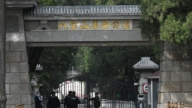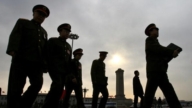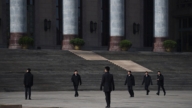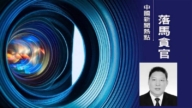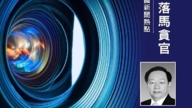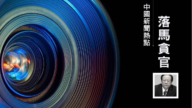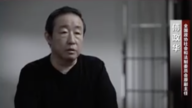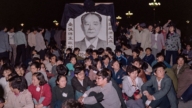【新唐人2012年7月12日訊】研究中國問題的專家們多數認為,中國現今積蓄的各種社會、經濟和環境矛盾已經到了臨界點,中國將出現變局! 即將成為中共第五代領導人的習近平,被輿論形容是「站在十字路口的中共領導人。」媒體分析報導了「習近平的三大挑戰」,習近平是否能解決中國的各種矛盾衝突? 建立良好的制度? 評論認為,中共一黨專政的體制不變的話,中國的變局希望不大。
今年秋季,在中共預定要召開的十八屆黨大會上,習近平將被選為中共中央總書記,成為第五代領導人。中國將進入所謂的「習近平時代」。
但是,新加坡《聯合早報》報導,學者提出,即將接班的中共新一代領導人,必須應對三個嚴峻的挑戰:一是,如何管理好8200萬名黨員;二,緩解貧富差距;三,回應中國民眾日益高漲的參政訴求。
新加坡「國立大學」教授黃靖在一個論壇的相關主題討論中指出,中國共產黨現有8200萬黨員,隊伍看起來很強大,但是北京對黨員的控制力,尤其對領導幹部的控制能力,實際上每況愈下。
報導說,這不僅是由於黨員貪污腐敗,而是因為中國的發展不均衡,利益多元,以致政策的相互排斥成了一個主要問題。
另外,歷時數十年的投資驅動型經濟,使得中國大陸的勞工薪資一直保留在低水平,中國的地區差異更加劇了貧富分化的現象。而中國人民要求參與政策制定過程的參政權,已經不可避免。
黃靖認為,改革已到了「不成功便成仁」的臨界點。
大陸作家鐵流向《新唐人》表示,如果中國不把「本位體制」解決,仍然「黨高於法」、仍然都是中共一把手說話算,那麼,中國就可能出現很多問題。
大陸作家鐵流:「習近平上臺有可能有很多根本問題沒解決,特別是維穩,中國的維穩現在走向歧途,它不是維穩、它是維體。李長春把持這個宣傳部門,把整個輿論全部封殺完,周永康把持政法部門,所有的公檢法全部是不遵守法律、超越法律,維護這些利益集團利益,實際上公檢法已經變成了看家狗。」
大陸資深媒體人高瑜表示,中國的危機主要是制度造成的,只要制度不改,不管誰上臺,就必須堅持一黨專政。而只有制度的改革,才能稱為政治改革。她認為,中國的變局寄託於習近平一個人,希望不大。
大陸資深媒體人高瑜:「現在這兩屆領導人江澤民、胡錦濤都是鄧小平指定的,所以這種接班人的運作方式不是選票,和老百姓的基本關係不大。你要建立民主的、公正的程序,從政治運作上都有一個民主的、憲政的平臺來運作。各方面的意見都可以表達,各個階層的意見都能表達。如果寄希望於一個人,就是習近平,是不夠的。」
解放軍最高學府「國防大學」的政委劉亞洲中將曾經說:十年之內,一場由威權政治向民主政治的轉型,不可避免的要發生,中國將出現偉大的變局。
但這個變局一旦發生,極有可能由習近平來挑起這個歷史的重擔,習近平能否開創中國民主的新紀元,世人都在期待中拭目以待。
採訪/白梅 編輯/周平 後製/葛雷
Xi Jinping』s Three Major Challenges
The majority of the “China” experts believe that,
now the variety of social,
economic and environmental problems have reached
a critical point, China will change!
Xi Jinping, who is going to be the fifth-generation leader,
is being described by the public that,
“A Communist Party leader standing on the crossroads.”
Media analyzes and reports “Xi』s three major challenges”.
Can Xi solve the variety of conflicts in China and
create a good institution?
The commentators believe that, if the one-party dictatorship
does not change, the hope of China changing is limited.
This fall, in the eighth session of the CCP』s Congress,
Xi Jinping will be elected as the general secretary of the CCP
Central Committee and become the fifth leader.
China will enter the so-called “Xi Jinping era”.
However, Singapore “Lianhe Zaobao” reported,
scholars have mentioned that,
about taking over the role of CCP』s next leader,
one must face three critical challenges:
Firstly, how to manage the 82 million Party members;
Secondly, ease the gap between rich and poor;
Thirdly, respond to the rising aspirations of
political participation of the people.
Singapore’s National University Professor Huang Jing,
in a forum with related topics, pointed out that
the CCP now have 82 million members
which is a strong team.
But Beijing』s control of the party members, especially of
the leading cadres, is in fact deteriorating.
Reports claim that, this is not only because of
the corruption of the party members,
but also because of the unbalanced development and
diverse interests which leads to mutual exclusion of policy.
In addition, the investment-driven economy which has taken
decades, ensuring the worker』s salary have been kept at a low level,
the regional differences have exacerbated the gap between
rich and poor.
Chinese people』s willingness to participate
in policy-making process is inevitable.
Huang Jing believes that reform has now come to
a critical breaking-point.
Mainland writer Tie Liu said to NTDTV that, if China does
not solve the “Standard system”,
it is still “the party above the law”, and it is still the CCP
as the one to speak, then, China will have a lot of problems.
Tie Liu: “There might be a lot of fundamental issues which
are not solved when Xi Jingping comes to power,
especially maintaining stability. Now China goes astray,
it is not maintaining stability; it is maintaining the system.
Li Changchun dominates the publicity department
which blocks all opinions.
Zhou Yongkong dominates political and legal departments
that all public security bureaus are non-compliant with the law or sit above the law.
Actually the public security bureaus have become a watchdog
who safeguard the interests of this interest group.”
Mainland senior media commentator Gao Yu said, China』s
crisis is mainly caused by the system,
as long as the system does not change, no matter who comes
to power, there will be a one-party dictatorship.
Only institutional reform can be called as political reform.
She believes that, it is not realistic to rely on
Xi Jinping to change the situation in China.
Go Yu: “The two former leaders Jiang Zemin and Hu Jintao
were appointed by Deng Xiaoping.
It is not based on election and has no strong relation
with ordinary people.
If you want to build a democratic and
fair procedures of election,
you should allow the opinions from all
aspects and levels to be expressed.
It is not enough to rely on one person,
which is Xi Jinping.”
The highest institution of the PLA, National Defense
University Lieutenant General Liu Yazhou, once said that:
Within a decade, a transition to democracy will inevitably happen.
China will experience a great change in situation.
If this change happens, it will be most likely
achieved by Xi Jinping.
The world is waiting to see if Xi Jinping can create a new
era of democracy in China.


